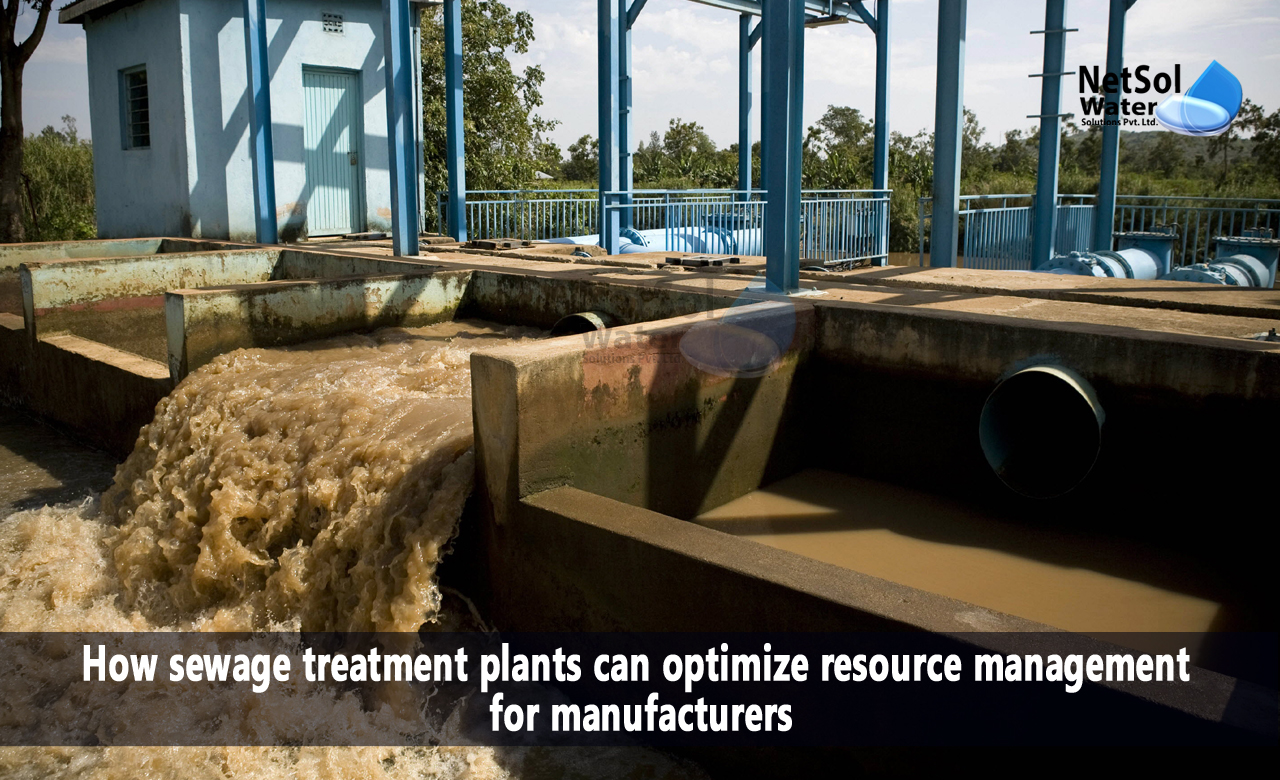How STP Plants can optimize resource management for manufacturers?
Effective resource management is a critical aspect of sustainable manufacturing. One key area where manufacturers can optimize resource usage is through the implementation of sewage treatment plants. These plants not only address wastewater management but also offer opportunities to recover valuable resources.
In this blog, we will explore how sewage treatment plants can optimize resource management for manufacturers, leading to enhanced sustainability and economic benefits.
1- Water Resource Optimization
Water scarcity is a growing concern globally, and manufacturers have a significant role to play in conserving this precious resource. Sewage treatment plants enable manufacturers to treat and reuse wastewater within their operations, reducing their reliance on freshwater sources. By implementing advanced treatment technologies, such as membrane filtration or biological processes, manufacturers can produce high-quality treated water suitable for various non-potable applications.
Reclaimed water from sewage treatment plants can be used for tasks such as cooling, cleaning, and irrigation. By optimizing water usage and recycling, manufacturers can minimize freshwater consumption, reduce costs associated with water acquisition and treatment, and contribute to long-term water sustainability.
2- Energy Recovery and Renewable Energy Generation
Sewage treatment plants offer opportunities for energy recovery and renewable energy generation. Anaerobic digestion, a common treatment process, converts organic waste in wastewater into biogas, a renewable energy source. Manufacturers can utilize this biogas to generate electricity or heat, reducing their reliance on fossil fuels and lowering greenhouse gas emissions.
Additionally, by adopting combined heat and power (CHP) systems, manufacturers can maximize energy efficiency by utilizing the heat generated during biogas combustion. This process provides both electricity and thermal energy for on-site use, further optimizing resource utilization and reducing energy costs.
3- Nutrient Recovery and Fertilizer Production
Wastewater contains valuable nutrients such as nitrogen and phosphorus that can be recovered and repurposed rather than being discharged into water bodies. Sewage treatment plants equipped with nutrient recovery technologies can extract these nutrients and transform them into valuable fertilizers or other nutrient-rich products.
By recovering and reusing these nutrients, manufacturers reduce their dependence on external fertilizers, conserve natural resources, and minimize the environmental impact associated with nutrient runoff and eutrophication. Moreover, nutrient recovery promotes a circular economy approach by closing the loop on nutrient utilization and reducing waste generation.
4- Waste Minimization and Resource Conservation
Sewage treatment plants facilitate waste minimization by effectively treating and removing pollutants from wastewater streams. This minimization not only helps manufacturers comply with regulatory requirements but also reduces the amount of waste that needs to be disposed of or treated elsewhere.
By implementing comprehensive treatment processes, including biological treatment, filtration, and advanced oxidation, manufacturers can optimize resource management by extracting pollutants and contaminants from wastewater. This ensures that the treated effluent meets or exceeds regulatory standards and reduces the environmental impact associated with wastewater discharge.
Conclusion
Sewage treatment plants offer manufacturers significant opportunities to optimize resource management and enhance sustainability. By implementing advanced treatment technologies, manufacturers can optimize water usage, reduce freshwater consumption, and conserve this precious resource. Furthermore, through energy recovery from biogas generation, manufacturers can reduce reliance on fossil fuels and lower greenhouse gas emissions.
Sewage treatment plants also enable manufacturers to recover valuable nutrients from wastewater, promoting a circular economy and reducing the need for external nutrient sources. Additionally, by effectively treating wastewater, manufacturers can minimize waste generation and comply with regulatory standards, further optimizing resource management.
Embracing sewage treatment plants as part of their resource management strategy allows manufacturers to reap both environmental and economic benefits. By optimizing resource utilization and contributing to a more sustainable future, manufacturers can enhance their reputation, reduce costs, and build resilience in an increasingly resource-constrained world.
Netsol Water is Greater Noida-based leading water & wastewater treatment plant manufacturer. We are industry's most demanding company based on client review and work quality. We are known as best commercial RO plant manufacturers, industrial RO plant manufacturer, sewage treatment plant manufacturer, Water Softener Plant Manufacturers and effluent treatment plant manufacturers. Apart from this 24x7 customer support is our USP. Call on +91-9650608473, or write us at enquiry@netsolwater.com for any support, inquiry or product-purchase related query.



